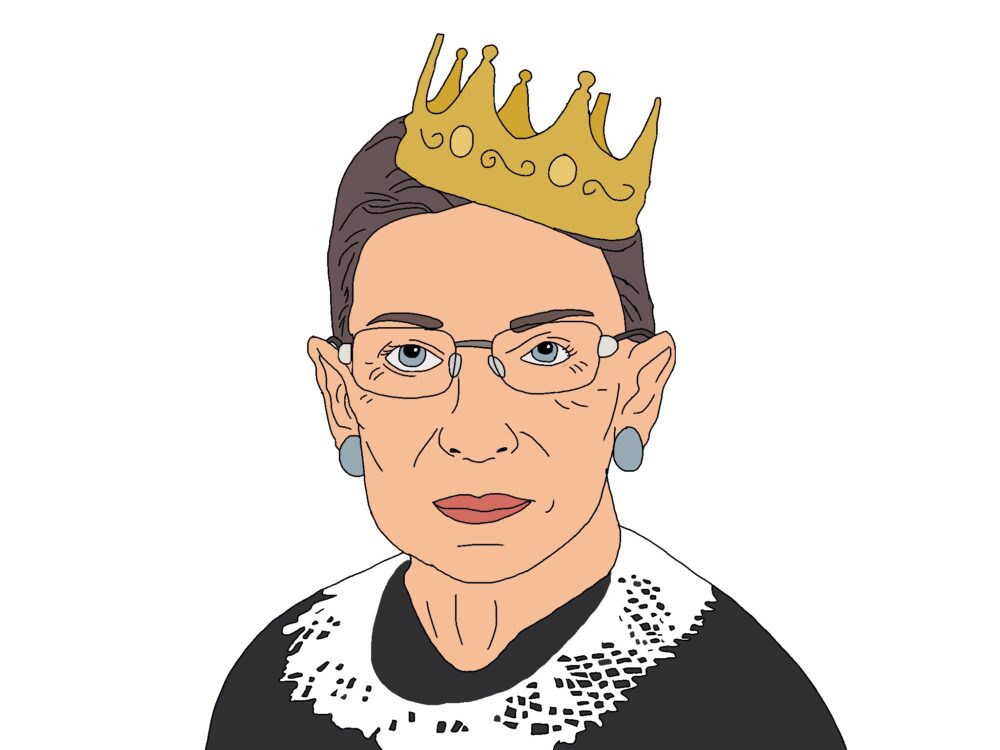
By Camelia Heins
Feminist. Fighter. Champion. Pioneer. The Notorious RBG.
To the women of past generations, and to young girls my age, Ruth Bader Ginsburg was an icon. As a little girl interested in politics, I looked to her, and other powerful women like Hillary Clinton and Madeleine Albright, as examples. Evidence that, despite the odds against me as a woman, I too could shatter that glass ceiling.
As a lifelong advocate for women’s and civil rights, Ruth Bader Ginsburg influenced the Supreme Court in more notorious ways than one. Known as the “Great Dissenter” for her famous liberal dissents, she quickly became a feminist icon in American pop culture. Every feminist such as myself idolized RBG for the impact she had on this nation.
Ruth Bader Ginsburg entered law school at a time when she and her 8 female peers at Harvard Law School were interrogated by the dean as to why they deserved to take the seat of a man. Ginsburg tied for top of her class when she transferred to Columbia and became the first woman on both the Harvard Law Review and Columbia Law Review at a time when women were considered second-class citizens. At a time when men were viewed as providers and women as caretakers, she proved that a woman could be both—putting her characteristic strength and resilience on display by taking care of her newborn daughter and helping her cancer-fighting husband with his schoolwork, all while studying herself.
Ruth Bader Ginsburg was a soft-spoken, reserved woman, but her passion for the law and conviction in women’s rights were bold and undeniable. She was tenacious and meticulous in every case she worked on, and strategic in fighting to tear down barriers to equality of sex. RBG stood before the Supreme Court multiple times, arguing her cases of gender discrimination to nine male judges, winning and changing the legal course of women’s rights across the nation in the process. Ultimately, she continued that fight on the other side of the bench as a justice herself, pushing her male colleagues toward consensus on women’s rights when she could and voicing her strong dissent when she couldn’t.
“Dissents speak to a future age,” Ginsburg once told NPR’s Nina Totenberg. “It’s not simply to say, ‘My colleagues are wrong and I would do it this way.’ But the greatest dissents do become court opinions and gradually over time their views become the dominant view. So that’s the dissenter’s hope: that they are writing not for today, but for tomorrow.”
Ruth Bader Ginsburg was practical, as her strategic litigation as a women’s rights lawyer for the American Civil Liberties Union demonstrated. But she was also principled and visionary, with a firm and optimistic belief in the possibility of an ever more just United States.
“I’m sometimes asked ‘When will there be enough [women on the Supreme Court]?’ and my answer is: ‘When there are nine,’” Ginsburg once said. “People are shocked. But there’ve been nine men, and nobody’s ever raised a question about that.”
Her life story is as inspiring as it comes. Her work, her strength, her passion and her devotion to this country should be a motivation for all women. Despite every obstacle in her way, she persevered, dedicating herself to upholding the words of the Constitution and sticking to her beliefs in justice for all. Every American, no matter their beliefs, should look to her life story as an example of resilience and success.
Thank you Ruth Bader Ginsburg for inspiring generations of women, including myself.





